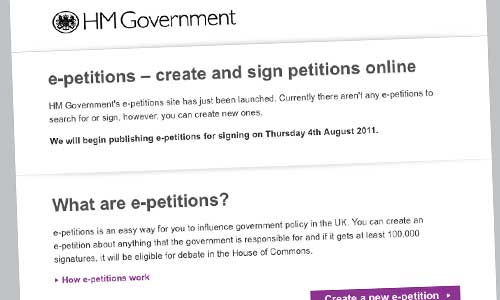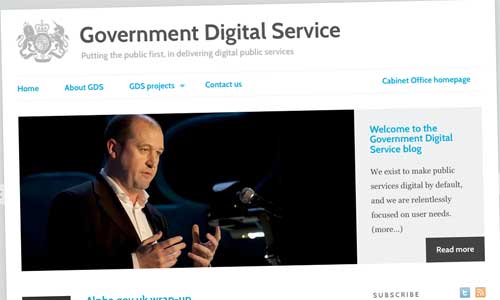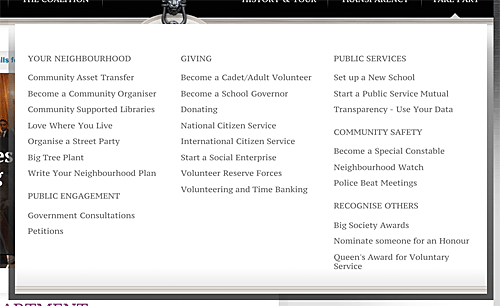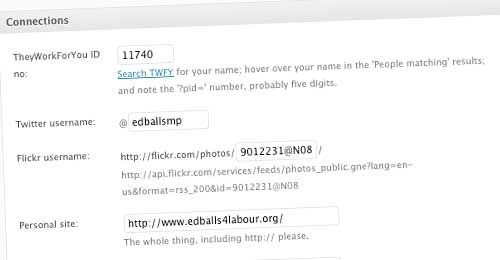If you’ve been following the whole Alphagov thing – and if you’re reading this, we can probably assume you have – then today’s Cabinet Office ‘announcement’ that the Single Government Domain project has now ‘progressed to the next stage’ won’t have come as any kind of surprise. I make it seven weeks since the team declared via Twitter:
We’ve moved on from developing the “Alpha” (prototype), so we’re no longer called @alphagov on Twitter. “Beta” now in development.
… followed soon after by Neil Williams’s revelation on his personal blog that he was now working half-time on ‘Betagov’.
Tom Loosemore’s blog post adds some detail, promising three things for ‘early 2012’:
- Public beta test of the site delivering the mainstream, citizen-facing aspects of gov.uk.
- Private beta test of a shared gov.uk ‘corporate’ publishing platform, aimed at replacing most of the activity currently hosted on numerous departmental publishing environments (see alpha.gov.uk/government for a flavour)
- A first draft of a gov.uk ‘Global Experience Language’, to provide clear, consistent design, user-experience and brand clarity for those developing sites for the single gov.uk domain. (see BBC.co.uk/gel for an example).
There will be a certain amount of dual running of ‘the beta’ and Directgov – ‘it will be constantly updated in order to trial the essential behind-the-scenes administrator tools & processes’ – indicating, at the very least, how serious they’re now taking it. Constant updating means, in effect, a ‘proper’ staff – and that’s probably the most difficult thing to arrange in Whitehall terms.
I’m glad to see Tom’s apparent acknowledgement that the ‘single domain’ approach only goes so far, and doesn’t perhaps sit too neatly with departmental representation. He writes: ‘the audience for such content tends to be more specialist and already engaged with the work of government than most mainstream users.’ Would departmental subdomains still count as being within a ‘single domain’, I wonder?
Of course, given my own experience with departmental publishing, it’s this aspect which I’m most interested in – even though it’s not the most important from the citizen perspective. And, to be frank, it’s the area where I feel Puffbox can be of most help. Throughout the past year (ish) working with Defra, we’ve kept in mind the possibility – increasingly, the likelihood – that departments would start to share a platform, and ultimately, share code within it.
We’ve shown how WordPress can be configured to bear the load, whilst still maintaining an efficient balance between centralised control and devolved publishing responsibility. And if you’re wondering why the Puffbox name doesn’t appear in Defra’s spending data on the No10 transparency site: that’s because we came in (well!) below the £25,000 threshold for publication.
Meanwhile, as highlighted earlier this week, we’re now up to four Whitehall departments (plus No10) using WordPress as their primary web platform. Thus far it’s been somewhat opportunistic; now it’s time to get a bit more strategic.
Update: The Register’s piece on the subject refers to a ‘Betagov’ budget of £1.6m: author Kelly Fiveash tweets to tell me it’s ‘an accurate figure the Cabinet Office gave [her] this morning’. Subsequently confirmed by Tom Loosemore: ‘yup, that’s the overall programme budget for single domain‘.









